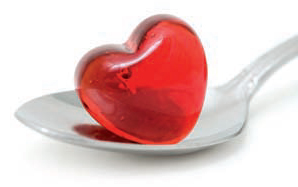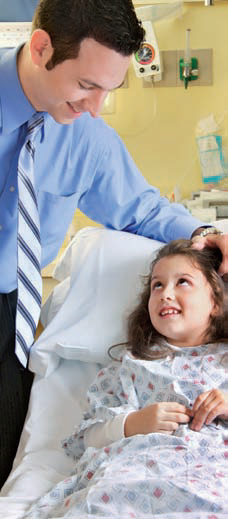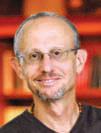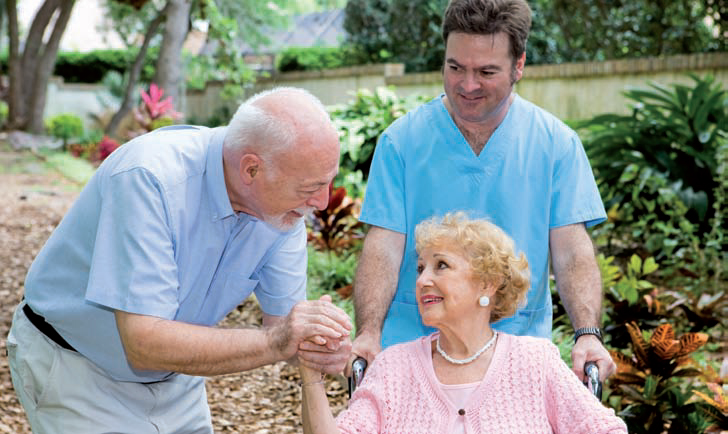 As a “mind-body” doctor, I hear many heartrending tales. Over the three decades I’ve been practicing medicine, I’ve come to see a person’s migraines, fatigue, digestive distress or back pain as a sad kind of admission pass that entitles the bearer to a few moments of a doctor’s attention. Listening to people’s problems for so many years, I’ve learned to tune in to the underlying sad story – most often a love story. For instance, a businessman recovering from a heart attack tells me about his relentless stress at an unfulfilling job that leaves him little time to spend with his family.
As a “mind-body” doctor, I hear many heartrending tales. Over the three decades I’ve been practicing medicine, I’ve come to see a person’s migraines, fatigue, digestive distress or back pain as a sad kind of admission pass that entitles the bearer to a few moments of a doctor’s attention. Listening to people’s problems for so many years, I’ve learned to tune in to the underlying sad story – most often a love story. For instance, a businessman recovering from a heart attack tells me about his relentless stress at an unfulfilling job that leaves him little time to spend with his family.
Listening for the underlying story isn’t something I learned during my conventional medical training, where I was taught that the heart is a circulatory pump and that coronary disease is caused by high cholesterol, diabetes, smoking, and high blood pressure. I learned how to treat hardening of the arteries, but little attention was given to the sad love stories that create heartache. My responsibility as a physician was to relieve symptoms: prescribe an angiotensin blocker to lower blood pressure, a statin to reduce cholesterol, or a nicotine patch to interfere with a patient’s smoking addiction.
In this era of managed care, in which one out of four doctors’ visits lasts less than 10 minutes, providing symptomatic relief for a person’s distress is a practical and worthy endeavor. This approach, however, ignores the story that longs to be revealed, for when we focus only on symptom relief we miss the deeper opportunity for healing.
“Like a young child, the body communicates its needs in a relatively simple & straightforward manner.”
 Hearing the Stories Like a young child, the body communicates its needs in a relatively simple and straightforward manner. Whether it wants nourishment, affection, new experiences, time to rest, or an opportunity to release toxins, your body generates sensations to get attention. When you listen to these signals and address the basic needs they represent, your body responds by producing chemicals of comfort. When you fail to heed your body’s message, it gets louder. If despite its best efforts, your body is unable to get your attention, it may stop talking for a while, but when next heard from, will not be ignored.When a doctor “fixes” someone without exploring the hidden meaning of the illness, the symptoms may abate but the unmet needs persist, and a person’s emotional and physical health remain vulnerable.
Hearing the Stories Like a young child, the body communicates its needs in a relatively simple and straightforward manner. Whether it wants nourishment, affection, new experiences, time to rest, or an opportunity to release toxins, your body generates sensations to get attention. When you listen to these signals and address the basic needs they represent, your body responds by producing chemicals of comfort. When you fail to heed your body’s message, it gets louder. If despite its best efforts, your body is unable to get your attention, it may stop talking for a while, but when next heard from, will not be ignored.When a doctor “fixes” someone without exploring the hidden meaning of the illness, the symptoms may abate but the unmet needs persist, and a person’s emotional and physical health remain vulnerable.
A migraine sufferer’s headaches may be less intense with medication, but her insomnia becomes more troublesome. The pain relievers prescribed to reduce a lawyer’s backache lead to an escalation of his digestive complaints. Suppressing a stay-at-home mom’s anxiety with pharmaceutical drugs shifts her focus to chronic fatigue. The body is trying to tell us something, but instead of listening, the tendency of conventional medicine is to use drugs as more effective sound barriers.

If there were pills that could cure anxiety, alcoholism, obesity or irritable bowel syndrome without significant side effects, there would be little reason not to take them. Sadly, there are few conditions causing human suffering that have surrendered to our “pill for every ill” approach. In the vast majority of cases, medicines lessen but do not eliminate symptoms and often carry side effects that are as distressing, and at times as dangerous as the illness we’re treating.
“If a person does not learn to heal the deeper love wound, another expression of the underlying story will emerge.”
An “alternative” alternative
What is the alternative? This word, alternative, carries a lot of emotional charge in healthcare these days. From the perspective of conventional medicine, alternative implies unproven interventions that keep people from accepting effective care. From the alternative health practitioner’s perspective, the word implies individualized therapies that relieve disease, even if they have not been subjected to rigorous scientific scrutiny.
I have a different perspective. Although I embrace any approach that can provide relief to your body, mind or soul, I’m wary of interventions that retain the power in the hands of the health practitioner, whether it be a medical doctor, chiropractor, or herbalist. I’m pleased when an acupuncture treatment, homeopathic remedy or nutritional supplement eases someone’s functional bowel disorder or headaches; yet, I wonder how long the reprieve can last if awareness and healing of the underlying mind-body turbulence does not accompany the relief. If a person does not learn to heal the deeper love wound, another expression of the underlying story will emerge.
Responsibility, not blame
There is rarely a simple explanation for physical or emotional illness, and looking for the deeper story does not mean assigning blame when your body becomes ill or your mind becomes distressed. Pursuing the answer to the question why people become sick is only of value if it leads to helpful shifts in thought, feeling and behavior. The last thing suffering people need is the additional burden of thinking they caused their illness or could have prevented it if they had made other choices. Responsibility is not the same as blame.
A close friend of mine recently discovered that her cancer had recurred after being in remission for several years. Her first question to me was, “What did I do to bring this back?” Knowing her enthusiasm for life, her love for friends and family, and her overall healthy lifestyle, I could not support her self-flogging over being too ambitious or trying to manage too many projects. Even if it were true (which I do not believe) this type of inner dialogue is unproductive. There is nothing we can do now about the past. We can take responsibility for the choices we make in the present moment.
“This word, alternative, carries a lot of emotional charge in healthcare these days.”
 Take a moment now and tune into your body. See if there is an area that is calling for your attention – an aching in your back, acidity in your stomach, a pressure in your temples. Bring your full attention into the area and breathe easily. Now in your imagination, ask your body what it is trying to tell you. What do you need to release that you are holding on to? What do you need to embrace that you are resisting? If your body reveals a need to you, see if you can commit to taking at least one step in the direction of fulfilling that need. Then check in again with your body and see if, as a result of being heard, it is willing to give you some relief.
Take a moment now and tune into your body. See if there is an area that is calling for your attention – an aching in your back, acidity in your stomach, a pressure in your temples. Bring your full attention into the area and breathe easily. Now in your imagination, ask your body what it is trying to tell you. What do you need to release that you are holding on to? What do you need to embrace that you are resisting? If your body reveals a need to you, see if you can commit to taking at least one step in the direction of fulfilling that need. Then check in again with your body and see if, as a result of being heard, it is willing to give you some relief.
The essence of responsibility is recognizing that regardless of what has happened up until now, we are capable of making new choices that can improve our situation moving forward. We have the ability to respond in creative ways that allow for something new to emerge, for healing to unfold.
 David Simon – David Simon, MD, was an author, physician, and co-founder of The Chopra Center for Wellbeing, California. Since his association with Deepak Chopra in the 1980’s, Dr. Simon became one of the foremost authorities in effective and appropriate fusion of western and eastern healthcare practices. He was dedicated to evolving the prevailing health care system to a “healing system.”
David Simon – David Simon, MD, was an author, physician, and co-founder of The Chopra Center for Wellbeing, California. Since his association with Deepak Chopra in the 1980’s, Dr. Simon became one of the foremost authorities in effective and appropriate fusion of western and eastern healthcare practices. He was dedicated to evolving the prevailing health care system to a “healing system.”




